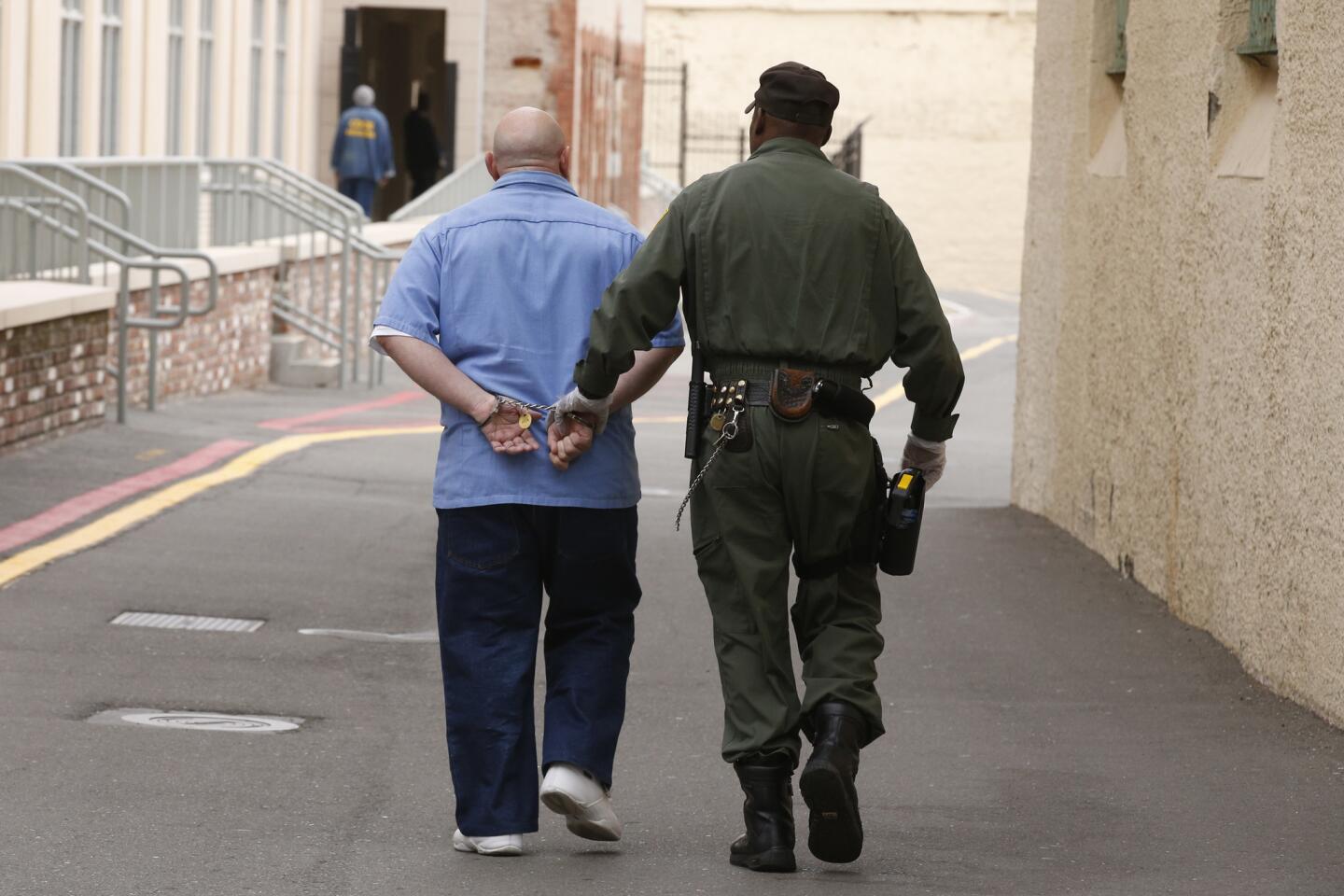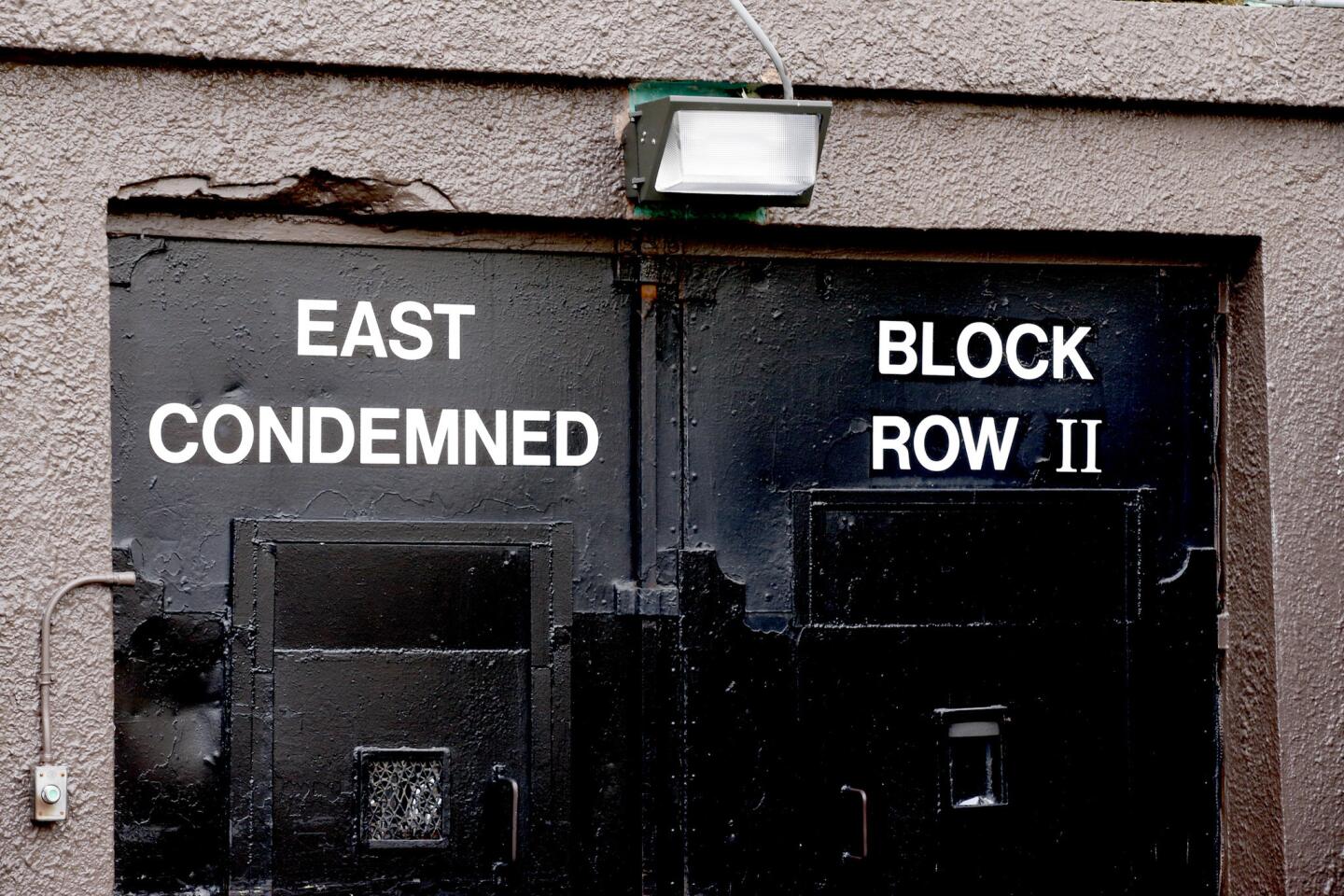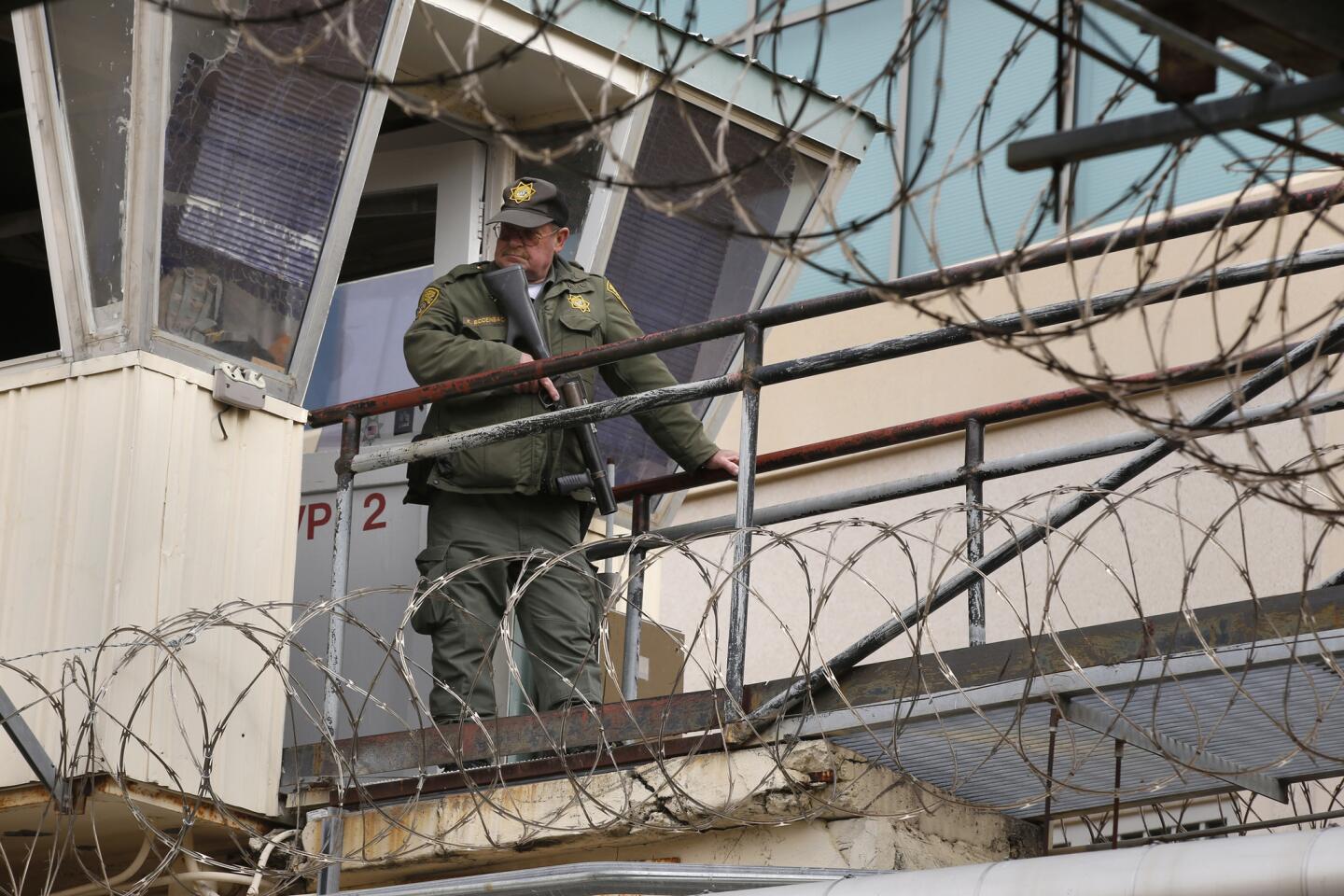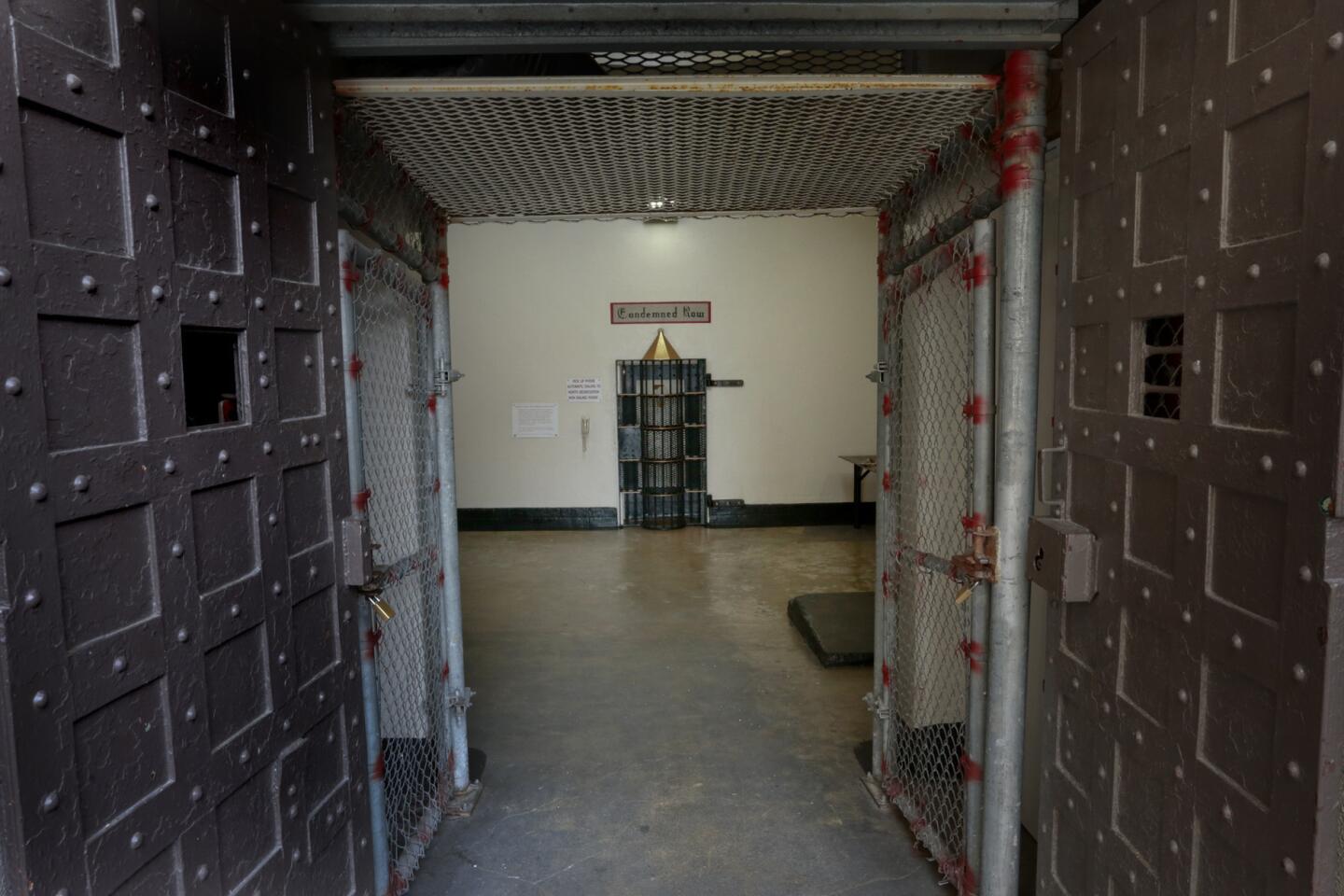Federal appeals court upholds California’s death penalty
- Share via
A federal appeals court on Thursday overturned a federal judge’s ruling that found the state death penalty system unconstitutional.
In a unanimous decision, a three-judge panel of the U.S. 9th Circuit Court of Appeals rejected the argument on a technicality that it did not address the question of whether life on death row in California constituted cruel and unusual punishment.
Lawyers who argued on both sides of the case said the appellate ruling was decided on largely technical grounds and leaves unanswered the larger question of whether lengthy delays are unconstitutional.
“The elephant is still in the room,” said John Phillipsborn, a San Francisco lawyer who intervened in the case on behalf of criminal defense lawyers in California.
The idea that death row inmates’ sentences have been transformed from one of death to one of “grave uncertainty and torture” has “no support” in legal precedent, “nor is it supported by logic,” the judges wrote in the decision.
U.S. District Judge Cormac J. Carney had ruled on July 16, 2014, that the system was unconstitutional, saying it was arbitrary and plagued by delays.
FULL COVERAGE: California’s death penalty >>
The case in question involved death row inmate Ernest Dewayne Jones, who was sentenced to die nearly two decades ago.
A Los Angeles County Superior Court judge in 1995 sentenced Jones to death for the 1992 rape and killing of Julia Miller, his girlfriend’s mother. Jones, who had served time for a previous rape, killed Miller 10 months after being paroled.
Carney, who was appointed by President George W. Bush, said delays had created a “system in which arbitrary factors, rather than legitimate ones, like the nature of the crime or the date of the death sentence, determine whether an individual will actually be executed.”
In overturning Jones’ death sentence, Carney noted that the inmate faced “complete uncertainty as to when, or even whether” he would be executed.
The “random few” who will be executed “will have languished for so long on Death Row that their execution will serve no retributive or deterrent purpose and will be arbitrary,” Carney said.
“No rational person,” Carney wrote, “can question that the execution of an individual carries with it the solemn obligation of the government to ensure that the punishment is not arbitrarily imposed and that it furthers the interests of society.”
The court struck down Carney’s ruling on the grounds that federal judges may not consider new constitutional theories in cases of habeas corpus, the legal means prisoners use to challenge their confinement.
“Many agree ... that California’s capital punishment system is dysfunctional and that the delay between sentencing and execution in California is extraordinary,” Judge Susan P. Graber, a Clinton appointee, wrote for the panel.
But the purpose of habeas corpus is to ensure that the conviction complied with federal law that existed at the time, “not to provide a mechanism for the continuing reexamination of final judgments based upon later emerging legal doctrine,” she wrote.
Judge Paul J. Watford, an Obama appointee, agreed that Carney’s ruling had to be struck down. But he said it should have been overturned on the grounds that the California Supreme Court has not yet ruled on the precise issue in the case -- whether arbitrary delay deprives the death penalty of any deterrent value.
If Watford had prevailed, the case would have returned to the California Supreme Court, which has indicated it would be willing to consider Carney’s theory.
Jones’ lawyers could appeal Thursday’s ruling to a larger panel of the 9th Circuit.
The appeals court panel’s decision was far from a surprise, given the skepticism some judges expressed during a hearing on the matter in August.
The judges focused on procedural land mines that could imperil Carney’s ruling. None of the 9th Circuit judges revealed any leanings at the time, but all focused on legal rules that might require them to overturn Carney’s decision.
MORE ON DEATH PENALTY:
Why are 10% of prisoners on death row veterans, some with PTSD?
California proposes new single-drug method for executions
Editorial: New lethal injection protocol isn’t the answer to California’s death penalty debate
More to Read
Sign up for Essential California
The most important California stories and recommendations in your inbox every morning.
You may occasionally receive promotional content from the Los Angeles Times.

















